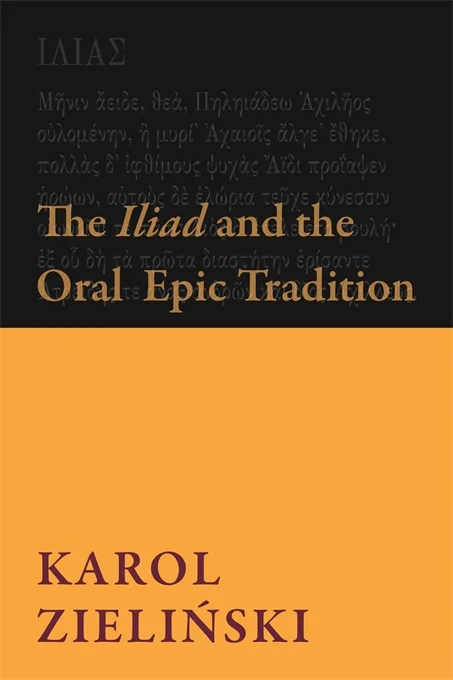
The Illiad and the Oral Epic Tradition by prof. Karol Zieliński was published by Harvard University Press
Harvard University Press published The Illiad and the Oral Epic Tradition in the Hellenic Studies series. It comprises a revised and expanded version of Iliada i jej tradycja epicka. Studium z zakresu greckiej tradycji oralnej, the book published by Wydawnictwo Uniwersytetu Wrocławskiego (University of Wrocław Publishing House) in 2014. In recognition of the quality of the claims presented in the book, the editorial committee of the series accepted it for publication in an extraordinary mode, i.e. by relying on the internal reviews of several committee members. Such a procedure has only been used in a few cases to date.
Although The Illiad undeniably exhibits features of the oral style, many contemporary scholars question whether the epic can be regarded as a product of the oral tradition. Karol Zieliński tries to prove that Homer’s admired artistry as well as the allusions to events known from other songs do not indicate the necessity of using writing during the composition of the Iliad. Zieliński outlines the path of development of epic oral cycles and suggests that the Iliad is only one possible recollection of the story of the Trojan War, in which Achilles becomes the protagonist. The artistry of the style is the result of the bard’s effort to attract and hold the listeners’ attention. As it turns out, the bard has at his disposal many techniques that are reserved for performative practice. Allusions play a unique role in this effect, as the bard relies on his and the audience’s shared knowledge of traditional stories. Particular mental images, such as the death of Achilles, are deposited in various versions in the collective memory of a community operating in the same oral tradition as the bard. As a result, the creativity of the bard is activated and he can intentionally shape the ‘character’ of important figures of a given epic tradition (such as Achilles, Odysseus, or Paris) without changing the traditional role these characters play in other songs of the cycle. Thus, the oral poet can present an alternative version of traditional episodes as well as reinterpret their ideological meaning. Each song in the cycle is the story of the entire war, even if it only depicts one episode (for which it is crucial to indicate the narratively relevant beginning and end of the story within the macro-story the audience is aware of), as each song is not so much a separate plot as an evocation of a myth expected under specific performative conditions, which, despite the differences revealed in the individual songs, remains unchanged.
Karol Zielinski, dr hab. prof. UWr, is a Hellenist employed at the Institute of Classical, Mediterranean and Oriental Studies at the University of Wrocław. He is the head of the Centre for Interdisciplinary Research on the Relationship between Oral and Written Culture at the Faculty of Letters at the UWr and the editor-in-chief of the journal Quaestiones Oralitatis. In his research work, he focuses on the analysis and interpretation of the earliest works of Greek antiquity in the spirit of their belonging to, or connection with, the oral tradition. He also addresses the issue of the functioning of oral cultures from a comparative perspective by referring to ancient Greek material.
Translated by Justyna Janik (student of English Studies at the University of Wrocław) as part of the translation practice.



